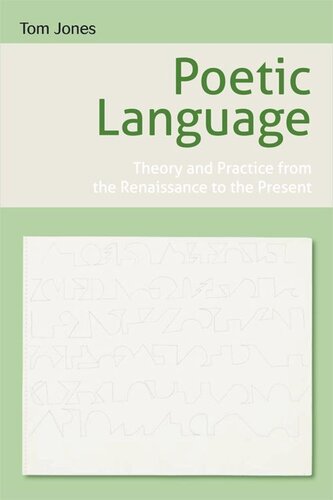

Most ebook files are in PDF format, so you can easily read them using various software such as Foxit Reader or directly on the Google Chrome browser.
Some ebook files are released by publishers in other formats such as .awz, .mobi, .epub, .fb2, etc. You may need to install specific software to read these formats on mobile/PC, such as Calibre.
Please read the tutorial at this link: https://ebookbell.com/faq
We offer FREE conversion to the popular formats you request; however, this may take some time. Therefore, right after payment, please email us, and we will try to provide the service as quickly as possible.
For some exceptional file formats or broken links (if any), please refrain from opening any disputes. Instead, email us first, and we will try to assist within a maximum of 6 hours.
EbookBell Team

5.0
108 reviewsThe first study of poetic language from a historical and philosophical perspective
In a series of 12 chapters, exemplary poems - by Walter Ralegh, John Milton,William Cowper, William Wordsworth, Gerard Manley Hopkins, Wallace Stevens, Ezra Pound, Frank O'Hara, Robert Creeley, W. S. Graham, Tom Raworth, Denise Riley and Thomas A. Clark - are read alongside theoretical discussions of poetic language.
The discussions provide a jargon-free account of a wide range of historical and contemporary schools of thought about poetic language, and an organised, coherent critique of those schools (including analytical philosophy, cognitive poetics, structuralism and post-structuralism). Via close readings of poems from 1600 to the present readers are taken through a wide range of styles including modernist, experimental and innovative poetries. Paired chapters within a chronological structure allow lecturers and students to approach the material in a variety of ways (by individual chapters, paired historical periods) that are appropriate to different courses.
Key Features: